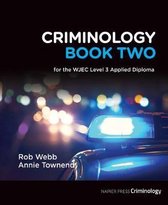AC2.2
Describe Trial Process
In the criminal system there are three types of offences: summary, triable-either-way, and indictable offences.
Summary offences are minor offences such as battery or motoring offences – these go to the crown court. Triable-
either-way offences goes down to the severity of the case and its facts and can either go to a magistrates court or
crown court. For example, a theft of a car would go towards a Crown court, but a theft in a small shop would go to
the Magistrates court. Indictable Offences are the most serious offences such as murder, rape, s.18 GBH which go to
the Crown Court.
In the magistrates court, pre-trials can take place. These are decision that the magistrates court take before a trial is
heard – they start with a pre-trial review where they deal with points of law, such as is the evidence admissible?
When a plea happens, a charge is read out and the defendant pleads guilty or not guilty. If the defendant pleads not
guilty, the magistrates make a decision about reports, legal aid, and bail – this has to be done before the trial goes
ahead. However, if the defendant pleads guilty, the evidence is heard and they will either pass sentence or adjourn
for a later date. If this is beyond the magistrate’s ability, the case goes to the Crown Court.
Plea bargaining is apart of the trial process. This is an agreement between the defendant and the prosecutor and
sometimes the judge. The agreement is for the defendant to plead guilty before the case goes to trial – if this is the
case, a generous sentence is gifted. There are three types of plea bargaining: Charge bargaining, Count bargaining
and Sentence bargaining.
Charge Bargaining is if the defendant pleads guilty to a less serious charge and gets a lighter sentence. Count
Bargaining is if the defendant pleads guilty to one charge in return for other chargers to be dropped. Finally,
sentence bargaining is if the D pleads guilty to the original charge and is received a more lenient charge.
Bail is apart of the trial process where the suspect can be released from detention until the case is heard. This is
granted under the s.4 Bail Act 1976 – they have a general right to bail unless they fail to surrender to custody,
commit an offence whilst on bail or interfere with witnesses or otherwise obstruct the course of justice.
Bail may be granted by the police or by usually a Magistrates Court or the Crown Court. This is Granting Bail. They
can grant unconditional bail – this is where there are no conditions and they only need to attend court when
required – or Conditional bail – such as a curfew – or a remand in custody where they are in prison until the court
hearing.
There are 6 courts that can hear cases. The Supreme Court, formally the house of lords, is the highest court in the UK
and hears the most serious cases. The 12 Justices of the Supreme Court can only hear a case if it involves a point of
law that is of public importance. The decision of the court is final and binds all courts to the same verdict. The
Supreme Court also has the power to change the law, or create a new law.
The Court of Appeal comes under The Supreme Court. They hear back from the Crown Court after a verdict/sentence
has been given. The defendant needs to leave an appeal by a judge, which grants them permission to continue with
their case. The defence is presented by a barrister and a prosecution case put by a representative of CPS. A
defendant may choose to appeal their verdict and to ensure the verdict is safe, and that a miscarriage of justice
hasn’t occurred. If there are any mistakes with the verdict or during the trial, a defendant may require
compensation. The judge who hears the case in the Court of Appeal can order to retrial, a new sentence or quash
the conviction. The Court of Appeal includes the Lord Chief of Justice, Heads of Division and Court of Appeal Judges,
The High Court is the 3rd highest court in the UK. This is where the Chancery, the Queen’s Bench and family divisions
hear appeals from other courts, and “first instance” cases. These are heard by the High Court and Deputy High Court
judges.
The Crown Court heard all indictable cases and some triable-either-way criminal offences. It consists of a judge and
12 jurors, circuit judges and recorders The verdict is decided by the jurors, whereas the sentence is given by the
judge which is usually an unanimous verdict. Sometimes, a judge may accept a majority verdict of 10/2. Appeals
against conviction/sentence can occur which are sent from the Magistrates Court.





